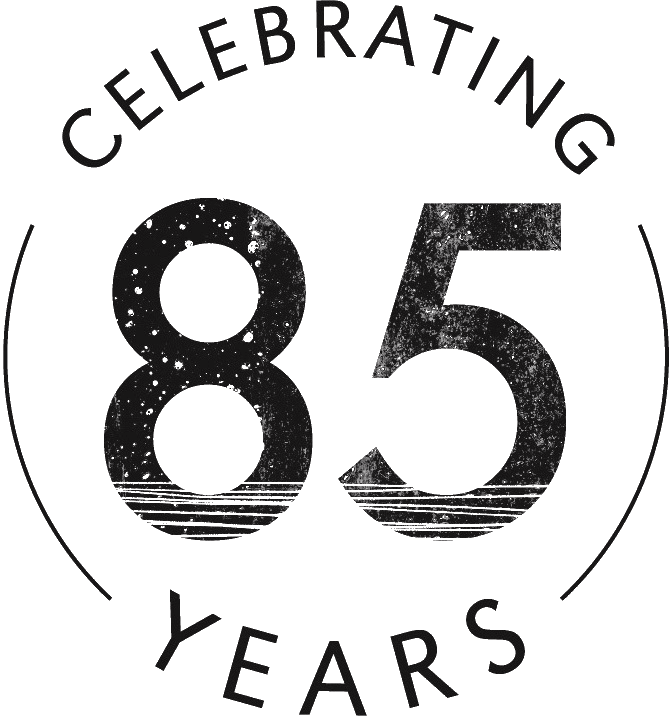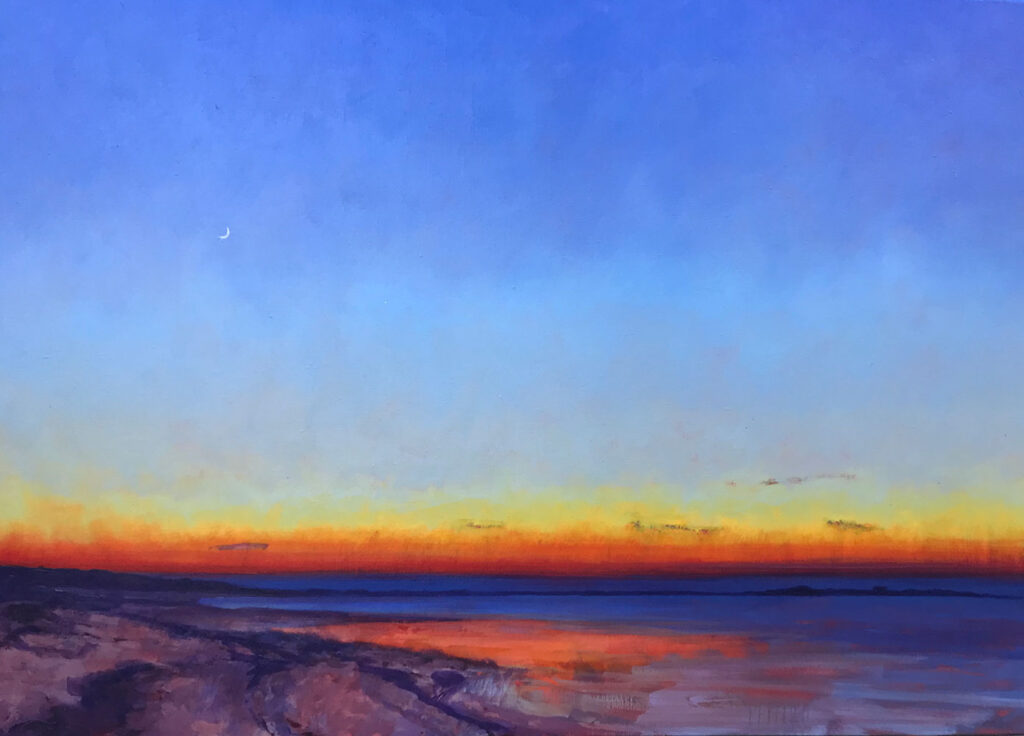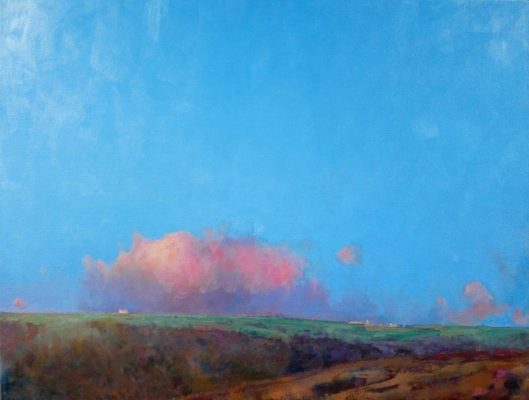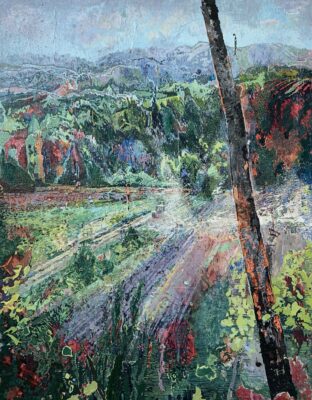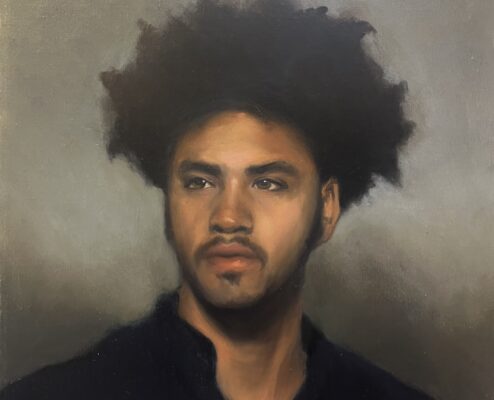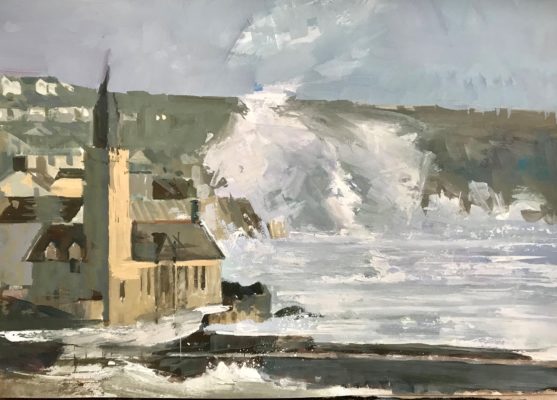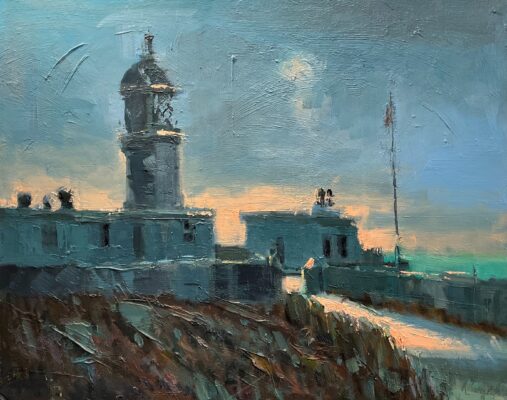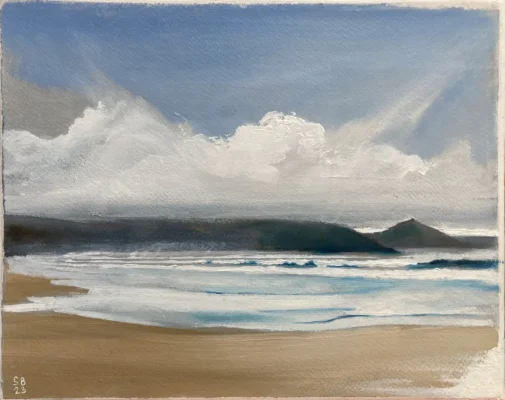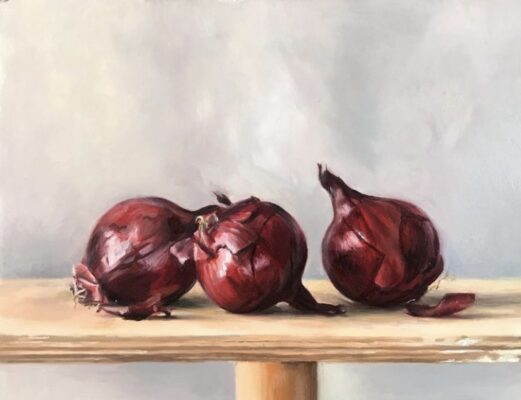Course details
How can you resist the urge to over complicate a painting? Learn the art of simplicity in your landscapes so everything matters more and learn to make meaning out of less.
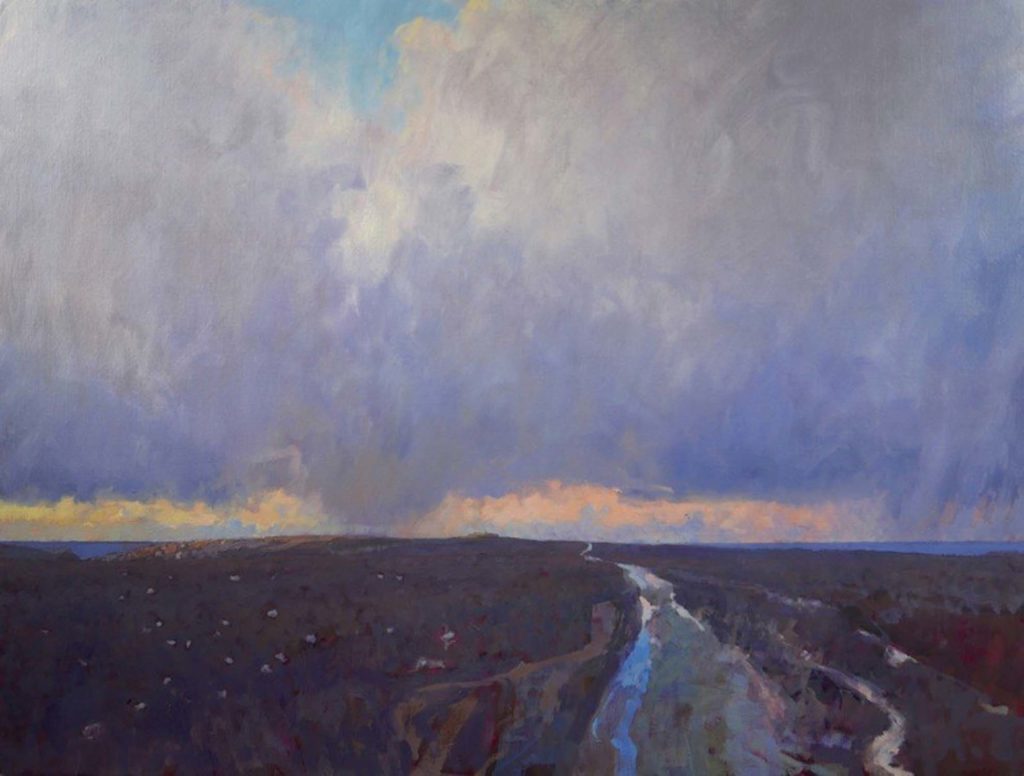
There can be so much going on in a landscape that you are trying to capture. The simplicity and clarity of vision other painters achieve can seem incredibly allusive. In this three day course artist Tom Rickman will share with you many of the devices he has developed and learned that help achieve this sweet spot of balance, harmony and reduction. So something as complex as the landscape can be distilled and refined into the essentials we need to convey our ideas.
As well as drawing from his own practice for inspiration Tom will look to Georgio Morandi, William Nicholson, Mondrian, Frederic Church and Turner to name just a few.
We will mainly work with oils on the course while drawing with graphite and charcoal.
Day to day plan
This is a rough indication of what to expect over the course. However sometimes the structure of the days may alter depending on the nature of the group and weather.
Day 1
We’ll start with an introduction to the course and talk about some artists that have particular mastery over the art of reduction. We’ll then make sketches looking at the landscapes outside the studios and in the local area (weather permitting). In the afternoon we’ll develop our sketches back in the studio.
Day 2
We’ll head back out to gather more source material, using notes from the previous day. In the afternoon we’ll explore more landscape work by other artists and theory, looking at how we can apply techniques to our own painting moving into using oils on board.
Day 3
Working inside in the studio, we’ll develop pieces from previous days and look at how to bring a painting together.
What will I learn?
- How to simplify the landscape to reduce complexity
- Understand better economy and reduction of form and composition
- Explore the nature of the golden section to recognize “the sweet spot” in your composition and other visual devices to help you make decisions in your painting
- Understand how to articulate and balance the subject
- The basics of using oil paints
Who would this course suit?
This course is ideal if you have some painting experience but are looking to discover more in your painting. If you’re a complete novice you are most welcome to join – all that is required is the patience to look and see things a little differently. There will be some walking and painting en plein air, so please be prepared to do some walking and sit on rough ground or rocks to observe and sketch.
Taught by
What to Bring
Our studios are fully equipped and we provide you with all the materials you need for your course. However, if you have a favourite set of brushes or any specialist materials that you would prefer to use, please bring them with you.
Timings and Breaks
The first day starts at 10am and finishes at 4.30pm, please aim to arrive ten to fifteen minutes before the start time.
All course days after that start at 9.30am and finish at 4pm and there will be an hour for lunch. There are plenty of nearby places to eat and we will serve tea and coffee at break times during the day.
FAQs
Studio Courses
How can I get help in choosing a course?
Our friendly expert staff are always happy to discuss your needs and our courses in more detail to help you with your decision. Please call us on 01736 797180
How do I get my work home?
Tutors have special techniques for transporting oil paintings and the school has plastic folders available in our shop for £3.50 or do bring a portfolio.
For international students we are happy to arrange transportation of your work back home.
What do I need to bring?
Absolutely nothing! All materials and aprons are provided although some people do like to bring their own set of brushes.
What do I do for lunch?
Courses allow an hour’s break for lunch and there are numerous places nearby or you are welcome to bring a packed lunch into the studio.
What times do courses run?
Most of our courses start at 10am and end at 4.30pm on the first day. Subsequent days we start at 9.30am ending at 4pm.
Weekend Courses run 10am – 4pm on the first day but the final day starts at 9.30 and ends at 3.30 with a short lunch break to enable people to get home that evening.
Do you have to be experienced to come to the School?
The School is a very friendly and welcoming place for all ages and experience. Our drop-in life classes and August half-day workshops are ideal for those wanting to have a go for the first time. Most of our longer courses are also fine for novices.
If any of the courses do need a bit of experience we flag this up in the brochure and on the website.
Booking a Course
How can I reserve a place?
We will hold a provisional reservation for 24 hours if you give us a call whilst you find accommodation. Otherwise please book online or by telephone 01736 797180.
You can reserve a place with a £100 deposit; balance is due 12 weeks before course start date.
About St Ives
Where do I park?
The nearest long stay public car parks are the Island and Barnoon Long Stay Car Park, both a 5 minute walk away. In the peak summer months it may be easier to park at Trenwith Car Park by the leisure centre and walk down into town. If you don’t fancy the walk up the hill at the end of the day there is a shuttle bus which runs from outside the cinema.
How do I get there?
Public Transport: If you are coming from further afield the main train line runs into St Erth which is a 15 min taxi ride away or you can take the St Ives Bay Line which runs approx. every 30 minutes. The School is a 10 minute walk from St Ives station.
Driving: M5 will take you to Exeter where we recommend that you take the A30 across Bodmin Moor and into Cornwall. After passing Hayle, leave the A30 at St Erth roundabout for St Ives. Turn right at the second roundabout. This road will take you through Lelant and Carbis Bay into St Ives.
Where can I stay?
St Ives has a huge selection of hotels, guest houses and self catering accommodation to choose from. Please browse the art holidays St Ives section on our website and give us a call if you would like any help.
